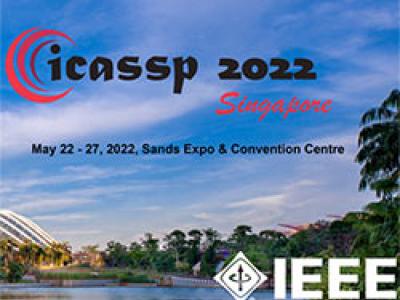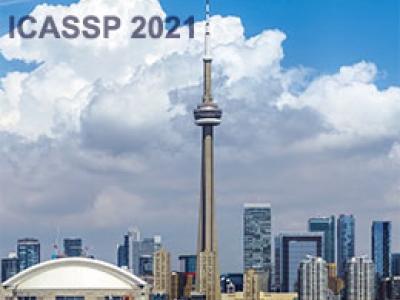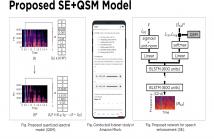
- Read more about Dual-branch Attention-In-Attention Transformer for single-channel speech enhancement
- Log in to post comments
- Categories:
 26 Views
26 Views
- Read more about DPT-FSNET: DUAL-PATH TRANSFORMER BASED FULL-BAND AND SUB-BAND FUSION NETWORK FOR SPEECH ENHANCEMENT
- Log in to post comments
- Categories:
 23 Views
23 Views
- Read more about DeepFilterNet: A Low Complexity Speech Enhancement Framework for Full-Band Audio based on Deep Filtering
- Log in to post comments
Complex-valued processing has brought deep learning-based speech enhancement and signal extraction to a new level. Typically, the process is based on a time-frequency (TF) mask which is applied to a noisy spectrogram, while complex masks (CM) are usually preferred over real-valued masks due to their ability to modify the phase. Recent work proposed to use a complex filter instead of a point-wise multiplication with a mask.
- Categories:
 125 Views
125 Views
- Read more about Bandwidth Extension is All You Need
- Log in to post comments
Speech generation and enhancement have seen recent breakthroughs in quality thanks to deep learning. These methods typically operate at a limited sampling rate of 16-22kHz due to computational complexity and available datasets. This limitation imposes a gap between the output of such methods and that of high-fidelity (≥44kHz) real-world audio applications. This paper proposes a new bandwidth extension (BWE) method that expands 8-16kHz speech signals to 48kHz. The method is based on a feed-forward WaveNet architecture trained with a GAN-based deep feature loss.
- Categories:
 133 Views
133 Views
- Read more about Towards an ASR Approach Using Acoustic and Language Models for Speech Enhancement
- Log in to post comments
Recent work has shown that deep-learning based speech enhancement performs best when a time-frequency mask is estimated. Unlike speech, these masks have a small range of values that better facilitate regression-based learning. The question remains whether neural-network based speech estimation should be treated as a regression problem. In this work, we propose to modify the speech estimation process, by treating speech enhancement as a classification problem in an ASR-style manner.
- Categories:
 46 Views
46 Views

- Read more about ADL-MVDR: All deep learning MVDR beamformer for target speech separation
- Log in to post comments
Speech separation algorithms are often used to separate the target speech from other interfering sources. However, purely neural network based speech separation systems often cause nonlinear distortion that is harmful for automatic speech recognition (ASR) systems. The conventional mask-based minimum variance distortionless response (MVDR) beamformer can be used to minimize the distortion, but comes with high level of residual noise.
ICASSP Poster 1240.pdf
ICASSP slides 1240.pdf
- Categories:
 27 Views
27 Views
- Read more about Multi-Channel Target Speech Extraction with Channel Decorrelation and Target Speaker Adaptation
- Log in to post comments
The end-to-end approaches for single-channel target speech extraction have attracted widespread attention. However, the studies for end-to-end multi-channel target speech extraction are still relatively limited. In this work, we propose two methods for exploiting the multi-channel spatial information to extract the target speech. The first one is using a target speech adaptation layer in a parallel encoder architecture. The second one is designing a channel decorrelation mechanism to extract the inter-channel differential information to enhance the multi-channel encoder representation.
- Categories:
 21 Views
21 Views
- Read more about Audio-Visual Speech Inpainting with Deep Learning
- Log in to post comments
In this paper, we present a deep-learning-based framework for audio-visual speech inpainting, i.e. the task of restoring the missing parts of an acoustic speech signal from reliable audio context and uncorrupted visual information. Recent work focuses solely on audio-only methods and they generally aim at inpainting music signals, which show highly different structure than speech. Instead, we inpaint speech signals with gaps ranging from 100 ms to 1600 ms to investigate the contribution that vision can provide for gaps of different duration.
- Categories:
 13 Views
13 Views